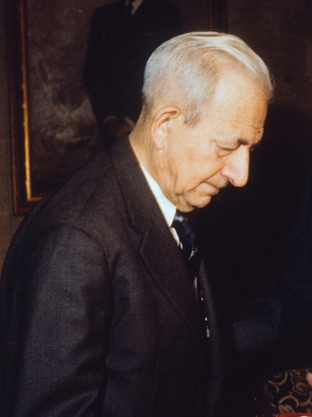
Joan Coromines i Vigneaux was a linguist who made important contributions to the study of Catalan, Spanish, and other Romance languages.
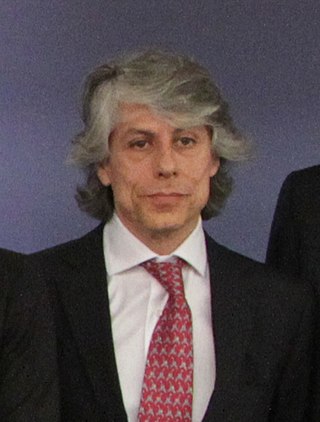
Carlos Carnero González is a Member of the European Parliament for the Spanish Socialist Workers' Party (PSOE). He has been a Member of the European Parliament (MEP) since 1994. On 7 December 2006, he was appointed a member of the presidency of the Party of European Socialists (PES).

The Castilian Left is a leftist nationalist political movement active in the Spanish autonomous communities of Castile-La Mancha, Castile and Leon and Community of Madrid. It strives to advocate for the national recognition of Castile, and in some cases, its independence. Other current political parties include Tierra Comunera, Castilian Party, and Ahora Castilla.

Conrado del Campo y Zabaleta was a Spanish composer, violinist and pedagogue.

Gramática de la lengua castellana is a book written by Antonio de Nebrija and published in 1492. It was the first work dedicated to the Spanish language and its rules, and the first grammar of a modern European language to be published. When it was presented to Isabella of Castile at Salamanca in the year of its publication, the queen questioned what the merit of such a work might be; Fray Hernando de Talavera, bishop of Avila, answered for the author Nebrija in a letter addressed to the monarch:
After Your Highness has subjected barbarous peoples and nations of varied tongues, with conquest will come the need for them to accept the laws that the conqueror imposes on the conquered, and among them our language; with this work of mine, they will be able to learn it, as we now learn Latin from the Latin Grammar.

The Diccionario crítico etimológico castellano e hispánico is a discursive etymological dictionary of Spanish compiled by Joan Coromines in collaboration with José Antonio Pascual. It was completed in the late 1970s and published in five volumes in the early 1980s. The entries Y and Z plus an index of the five volumes was published as a sixth volume in 1991. The dictionary is an expansion and consolidation of earlier etymological publications by Corominas, particularly the mid-1950s Diccionario crítico etimológico de la lengua castellana.

United Left is a federative political movement in Spain that was first organized as a coalition in 1986, bringing together several left-wing political organizations, grouped primarily around the Communist Party of Spain.
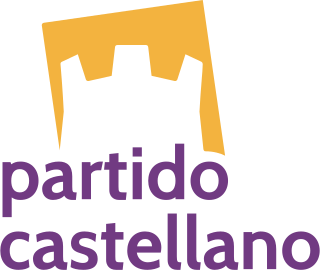
The Castilian Party, formerly the Party of Castile and León until 2011, is a Spanish political party resulting from the union of several Castilian nationalist and regionalist political parties from Castile and León, Madrid and Castile-La Mancha. The most relevant of the components is Tierra Comunera.
Ahora Castilla was a political pact signed by a string of Castilian nationalist political parties and associations whose primary aim was to found a political platform. The signatory groups were: Tierra Comunera, Castilian Left, Castilian Soup and Castilian Land. This pact was embodied in form of a manifesto known as The Manifesto of Alcalá de Henares, because it was publicly presented in the city of Alcalá de Henares, (Spain).
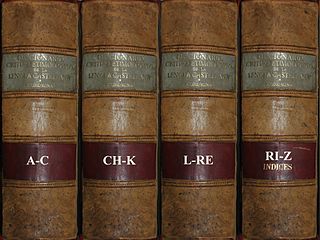
The Diccionario crítico etimológico de la lengua castellana is a four-volume etymological dictionary of Spanish compiled by the Catalan philologist Joan Corominas (1905-1997), and first published by Francke Verlag in Bern, Switzerland, in 1954.
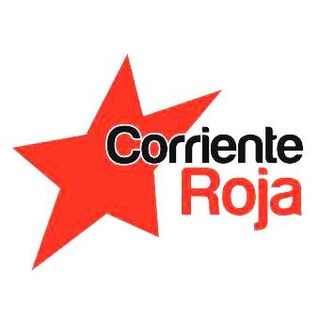
Corriente Roja is a Spanish Trotskyist political organization, adhering to the International Workers League – Fourth International in 2012. CR defends and supports social struggles, class independence and political gains of the working class in order to establish a republic of workers. CR proposes the construction of a socialist economy, based on workers' democracy and the traditions of the alternative labor movement. According to its mission statement, current Red describes itself as follows:
Corriente Roja will put in place a strategy defined by its anticapitalist Marxist character, radically democratic, internationalist, ecologist and feminist

United Left of Cantabria is the Cantabrian federation of the Spanish left wing political and social movement United Left. Jorge Crespo is the current General Coordinator. The Communist Party of Cantabria and Izquierda Abierta.

Castilian Popular Unity was a leftist nationalist political party active in the Spanish autonomous community of Castile and Leon. It defended the national recognition of Castile and its independence.
Democratic Party of the New Left was a social democratic and ecologist political party in Spain. It was created in 1996 by a group that split from the United Left (IU) led by Cristina Almeida and Diego López Garrido.

Democratic Left Front, was a left-wing political coalition in Spain. The coalition was formed by the Party of Labour of Spain (PTE), the Independent Socialist Party, Independent Socialist Bloc, Party of Communist Unification in the Canaries and Communist Unification of Spain (UCE) to participate in the 1977 general elections. Most of those parties were still illegal at the time of the election. FDI presented lists in all Spain, except in Catalonia, were the PTE ran in a coalition with Republican Left of Catalonia (ERC), called Left of Catalonia–Democratic Electoral Front (EC-FED). The coalition failed to win any seat, and dissolved shortly afterwards.

The Greens–Green Group, founded in 1994 as Green Group, is a green political party in Spain. It is a founding member of the Roundtable for the Unity of the Greens in Spain. It was created as an electoral list in the 1994 European Parliamentary Elections. Since its creation, its spokesperson has been Esteban Cabal. It is not part of the European Green Party, and should not be confused with the EGP's previous representative in Spain, the Confederation of the Greens.

Left of Catalonia–Electoral Democratic Front, often shortened as just Left of Catalonia, was a left-wing political platform in Catalonia, formed by Republican Left of Catalonia (ERC), the Party of Labour of Catalonia (PTC) and Catalan State (EC) to contest the 1977 Spanish general election. The alliance was formed to allow the three parties to run for election, as they had not been yet legalized at the time. The alliance ran lists in all four Catalan constituencies for the Congress of Deputies, whereas for the Spanish Senate it supported the Agreement of the Catalans coalition. Its referent at the Spanish level was the Democratic Left Front (FDI).
Nodo50 is a non-profit internet service provider. It is an autonomous telematic alternative information project aimed at social movements. It provides computer and communication services to individuals, collectives and left-wing, anti-capitalist and anti-fascist organisations in Spain and Latin America. The project is managed by the association "Nodo50: Altavoz por la Libertad de Expresión y Comunicación".
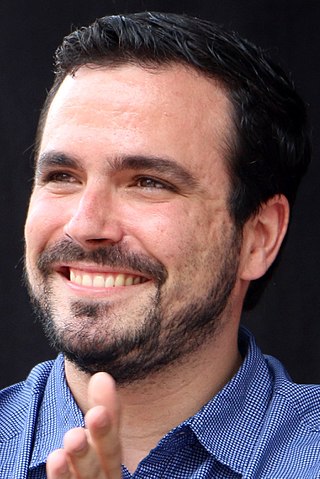
The 11th Federal Assembly of United Left was held in Madrid from 4 June to 5 June 2016, to renovate the governing bodies of United Left (IU) and establish the party's main lines of action and strategy for the next leadership term. A primary election to elect the new general coodinator of the party was held from 26 May to 29 May 2016. This was the first leadership election in IU's history in which all the party members were allowed to vote.















